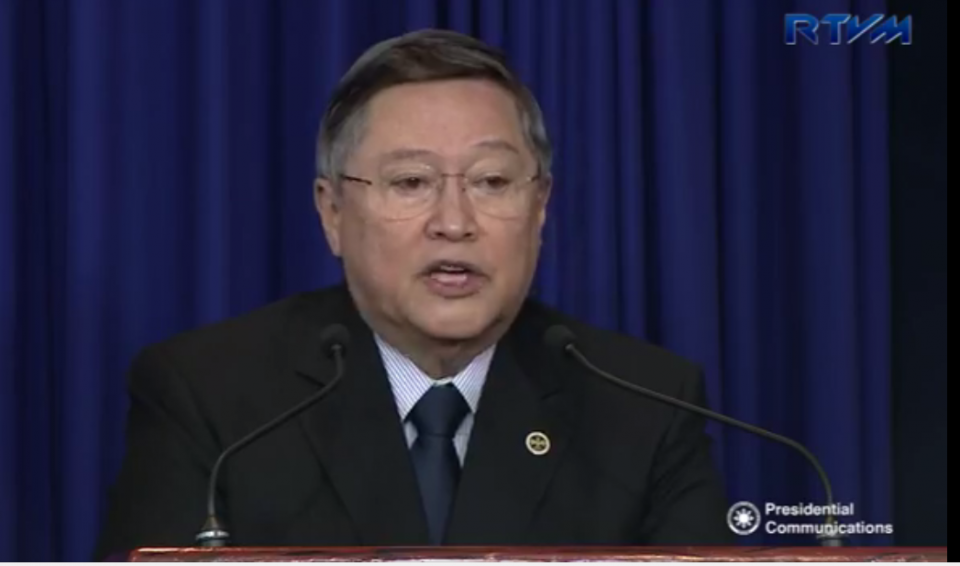

Finance Secretary Carlos Dominguez III has maintained that the draft federal Constitution contains ambiguous provisions on the allocation of expenditures for the would-be federated government and its federated regions, which underscore the urgency of opening more discussions on this proposed document crafted by the Consultative Committee (Con-Com) tasked to review the 1987 Constitution.
Dominguez made it clear that while the economic team is not against federalism, it has the responsibility to point out the ambiguous and unclear provisions in the proposed draft charter, “especially when the possible repercussions could result in dire, irreversible economic consequences.”
“We welcome a discussion on the draft so that it is clear and unambiguous. We do not want the revenue assignment and the expenditure assignment to be misunderstood, as what happened in the recent case involving the Internal Revenue Allotment (of the local government units),” Dominguez said in a statement.
As for the call of Con-Com member Ranhilio Aquino for President Duterte to fire him and Socioeconomic Planning Secretary Ernesto Pernia for stating their views on the proposed federal Charter, Dominguez said: “We respect the opinion of Fr. Aquino, but we believe that such attitude would not enrich the level of discourse on the proposed Constitution.”
Dominguez pointed out that while the draft Charter contains provisions on the taxation powers of the Federal Government and the Federated Region and a provision on revenue assignment in which the Federated Regions shall be given a 50 percent share in income, excise, value added taxes and customs duties, “there is no provision on expenditure assignment.”
The draft Constitution also enumerates the exclusive powers of the Federal Government and the Federated Regions but is silent on the funding source for the exercise of these powers, he said.
“As we pointed out earlier, we never stated that we are against federalism. Rather, with respect to the fiscal provisions of the proposed Constitution, there are ambiguous provisions on revenue assignment and there are no provisions on expenditure assignment,” the Finance chief said. “There are, likewise, principles on revenue sharing that do not appear to be well studied.”
Citing an example, Dominguez said that although the draft Constitution provides for an Equalization Fund, which shall not be less than 3 percent of the annual General Appropriations Act, it does not state whether this will be taken from the share of the Federal Government or of the Federated Regions.
The Equalization Fund refers to the allocation for the federated regions that would be distributed based on the needs of each region, with priority given to those that require greater support to achieve financial and economic sustainability as determined by a “Federal Intergovernmental Commission.”
Moreover, the recently enacted Bangsamoro Organic Law provides for a 5 percent block grant. “It is not clear from whose share this will come from,” Dominguez said.
He said that given these ambiguities, “it is our duty and responsibility to point these out and engage in a healthy, level-headed discussion, especially when the possible repercussions could result in dire, irreversible economic consequences.”
“We believe that these should be set out clearly so that they adhere to the principle that ‘funds follow function and ‘funds follow program,’ ” Dominguez said.
Dominguez said that based on the fiscal provisions of the draft federal Charter, the federal government would incur a deficit of 6.7 percent, which may result to a credit rating downgrade for the Philippines, which currently enjoys an investment-grade rating.
A credit rating downgrade would lead to higher interest rates, Dominguez pointed out.
To avoid this negative economic consequence and maintain the current deficit target of 3 percent, Dominguez said “the Federal government will have to cut its expenditure program by P560 billion.”
“This means the national government may have to lay off 95 percent of its employees, or reduce the funds for the ‘Build Build Build’ program by 70 percent, or a combination of both,” he said. (source: DOF)
